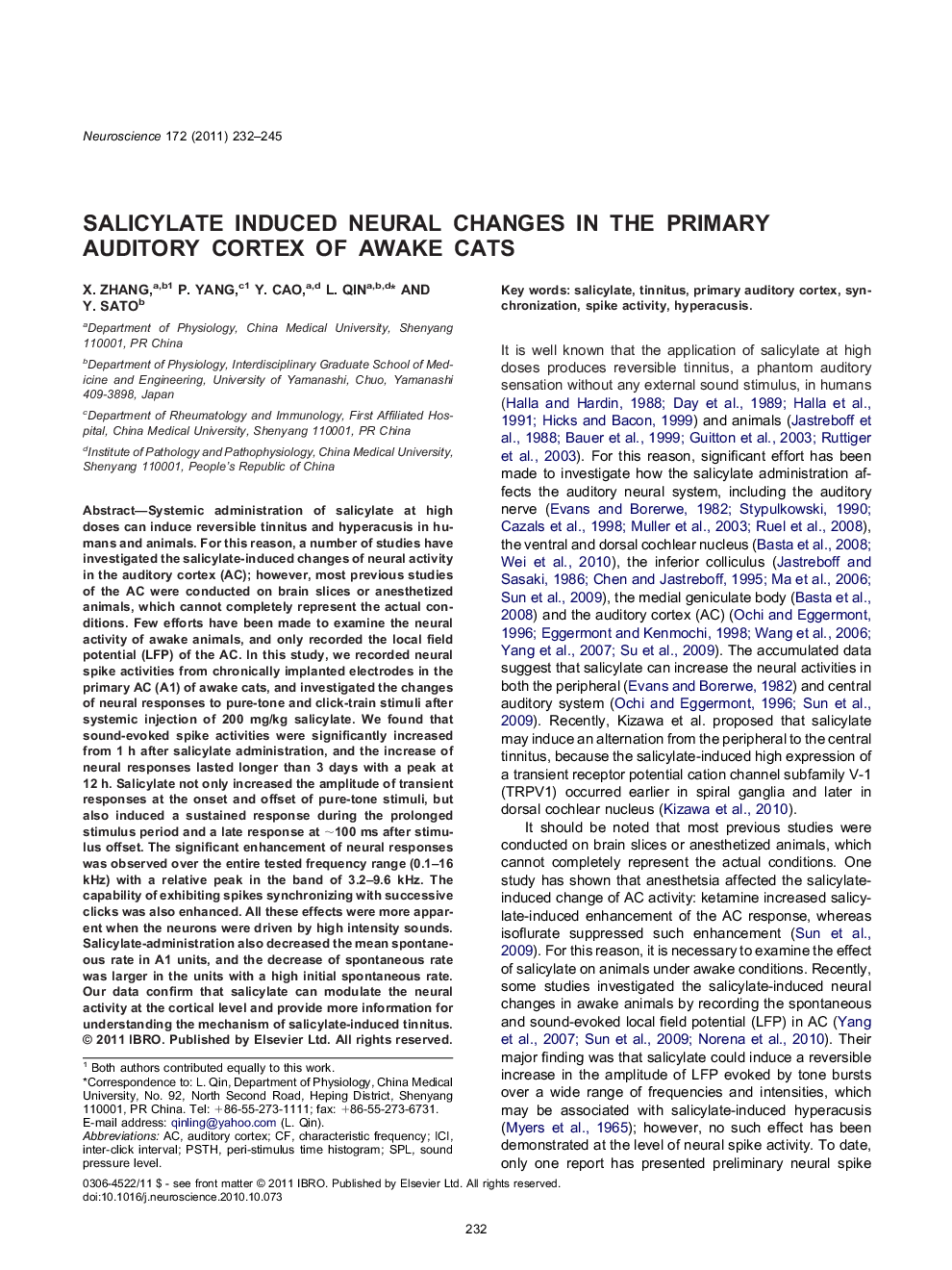| کد مقاله | کد نشریه | سال انتشار | مقاله انگلیسی | نسخه تمام متن |
|---|---|---|---|---|
| 4339044 | 1614904 | 2011 | 14 صفحه PDF | دانلود رایگان |

Systemic administration of salicylate at high doses can induce reversible tinnitus and hyperacusis in humans and animals. For this reason, a number of studies have investigated the salicylate-induced changes of neural activity in the auditory cortex (AC); however, most previous studies of the AC were conducted on brain slices or anesthetized animals, which cannot completely represent the actual conditions. Few efforts have been made to examine the neural activity of awake animals, and only recorded the local field potential (LFP) of the AC. In this study, we recorded neural spike activities from chronically implanted electrodes in the primary AC (A1) of awake cats, and investigated the changes of neural responses to pure-tone and click-train stimuli after systemic injection of 200 mg/kg salicylate. We found that sound-evoked spike activities were significantly increased from 1 h after salicylate administration, and the increase of neural responses lasted longer than 3 days with a peak at 12 h. Salicylate not only increased the amplitude of transient responses at the onset and offset of pure-tone stimuli, but also induced a sustained response during the prolonged stimulus period and a late response at ∼100 ms after stimulus offset. The significant enhancement of neural responses was observed over the entire tested frequency range (0.1–16 kHz) with a relative peak in the band of 3.2–9.6 kHz. The capability of exhibiting spikes synchronizing with successive clicks was also enhanced. All these effects were more apparent when the neurons were driven by high intensity sounds. Salicylate-administration also decreased the mean spontaneous rate in A1 units, and the decrease of spontaneous rate was larger in the units with a high initial spontaneous rate. Our data confirm that salicylate can modulate the neural activity at the cortical level and provide more information for understanding the mechanism of salicylate-induced tinnitus.
Research Highlights▶Salicylate can increase sound-evoked neural responses for three days. ▶Salicylate administration induced sustained and late firing. ▶Neural capability to synchronize with successive clicks was enhanced. ▶Salicylate can decrease the mean spontaneous rate in A1 units.
Journal: Neuroscience - Volume 172, 13 January 2011, Pages 232–245